Hearing weird noises from your car? Don't ignore them. They indicate a problem, but not necessarily an expensive one.
8 Unsettling Car Sounds and How To Fix Them
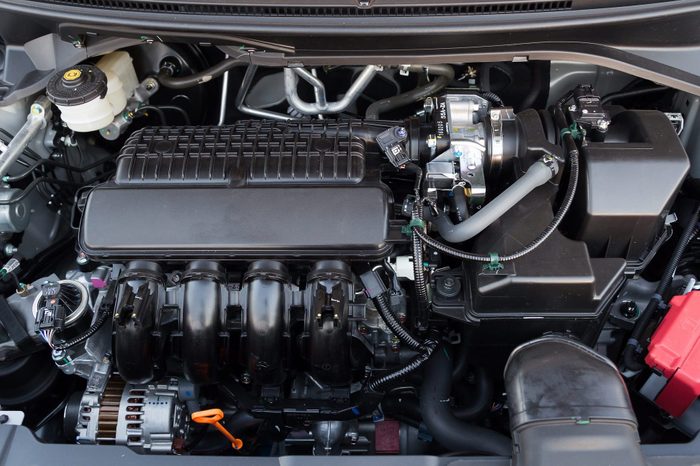
Why Is My Car Making a Rattling Noise?
Rattling noises indicate one of the 30,000 or so parts in your vehicle is loose. It’s usually a nut, bolt or other fastener. First, note where the rattle is coming from:
- Under the hood;
- Underneath the vehicle;
- Inside the vehicle or trunk;
- Around the tires and wheels.
Then, determine when it occurs: When turning, stopping, accelerating or hitting a bump?
Once you know where the rattle is coming from, look for wear marks, rust stains or worn paint from loose parts rubbing against each other.
The most common causes are loose brackets, worn suspension parts, a loose exhaust system or heat shield. A rotted catalytic converter or muffler can also cause rattling.
Most rattles under the hood or inside your car are simple DIY fixes. Check the obvious places for stuff rattling around — the glove box, or under the seats. Tighten any loose fasteners. Some suspension repairs can be done at home if you have the tools; many auto parts stores rent or lend them. Leave exhaust repairs to your mechanic.
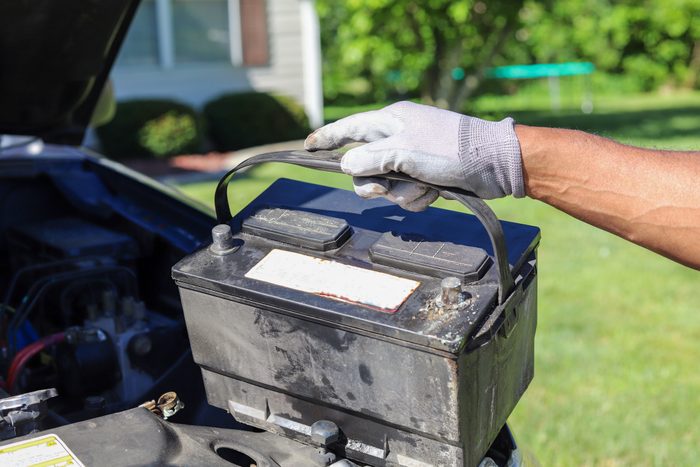
Why Is My Car Making a Clicking Noise?
If you hear clicking and your engine doesn’t start, it means a dead battery or bad starter motor. Jump-starting the engine or replacing your battery are simple DIY fixes. A portable jump starter comes in handy in these circumstances.
Clicking sounds while driving can be caused by:
- Loose wheel covers;
- Loose brake pads or calipers;
- Loose suspension parts like tie-rod ends or MacPherson struts;
- Worn drive axle or wheel/hub bearing;
- Defective drive belt tensioner.
- Worn engine parts.
In those cases, remove the wheel covers and clean rust from the inside of the cover and wheel. Wrap the area where the cover contacts the wheel with duct tape or weatherstripping foam to prevent clicking.
Replacing struts, checking for loose brake pads or replacing a belt tensioner are DIY repairs.
Changing engine oil and filter can help with engine clicking, but leave tie-rod replacement and internal engine noises/repairs to the pros.
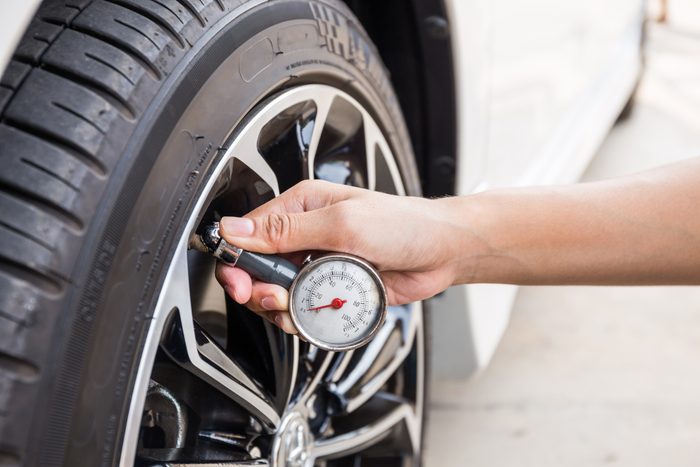
Why Is My Car Making a Whining Noise?
Low tire pressure can cause whining. High-pitched whining while turning usually indicates low power steering (PS) fluid. Add the proper PS fluid and check for leaks.
A worn water pump, alternator bearing or drive belt can also cause whining noises. You can fix these things yourself.
Whining also can come from your timing belts, manual or automatic transmission, differential, wheel/hub bearings or defective coolant fan motor or fan clutch. Check all fluid levels and top off or flush and replace with fresh fluids if necessary. If the whining continues, it’s time to visit your repair shop.
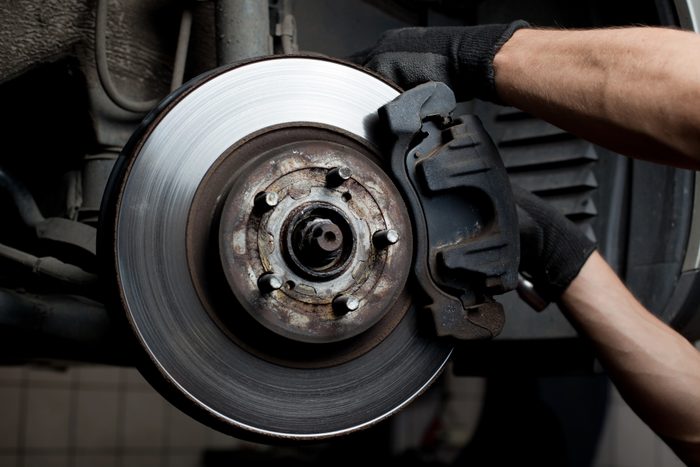
Why Is My Car Making a Squeaking Noise?
Worn and overheated brake pads and rotors are the leading causes of squeaking. Brakes are a critical safety feature and squeaking brakes should not be ignored. Squeaking can quickly turn into grinding, seriously decreasing braking efficiency. Disc brake repairs can be DIY if done before excess wear and tear has started.
Other squeaks can be caused by your tires, dry suspension parts and worn or missing hood/trunk bumper stops. Coolant from a leaking water pump or a heater hose, soaking the drive belts and pulleys, can also cause squeaking. These are all DIY repairs.
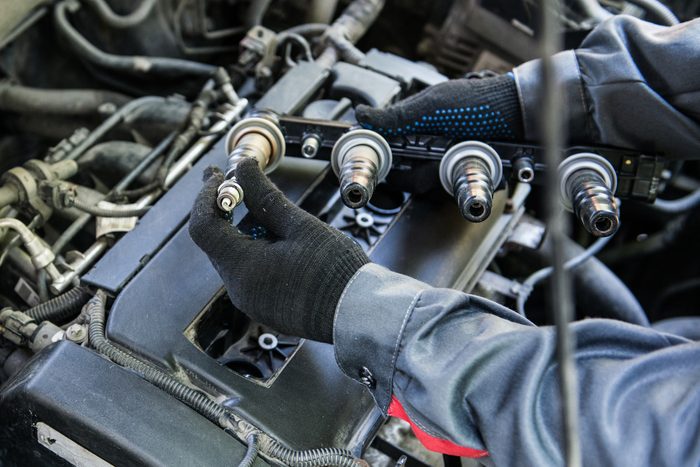
Why Is My Car Making Noise When Accelerating?
Accelerating puts tremendous strain on your engine, exacerbating any of the causes of noise mentioned above. Plus, a bad motor mount can let an engine shift, causing vibrations, clunking or scraping noises when accelerating. Leave motor mount replacement to your repair shop.
A noise that sounds like a chain dragged over a metal pipe could be engine knock or “pinging” due to excess carbon build up in the cylinders. Try higher octane fuel, change the spark plugs and engine oil, and add an engine fuel treatment to help remove carbon deposits.
A weak or worn drive belt, weak tensioner or worn accessory pulley can all cause squealing or chirping on acceleration. DIYers can make these repairs.
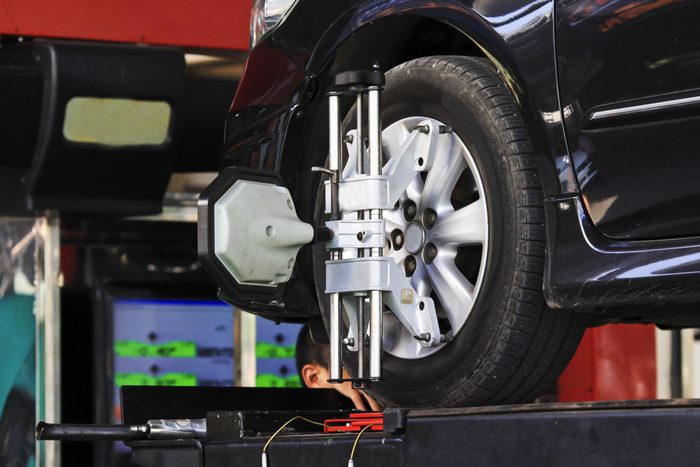
Why Is My Car Making Noise When Turning?
Low tire pressure, worn tires or an out of alignment suspension are the most common causes of noise when turning. Knocking, grinding or popping when turning are usually caused by loose, worn or defective suspension parts. Check your ball joints, coil springs, control arm bushings, rack and pinion steering gear and wheel/hub or strut mount bearings.
A front-drive axle CV (constant-velocity) joint that lost all its grease can be repacked and the boot can be replaced. But if it shows any sign of wear, replace it. These fixes are best left to your mechanic.
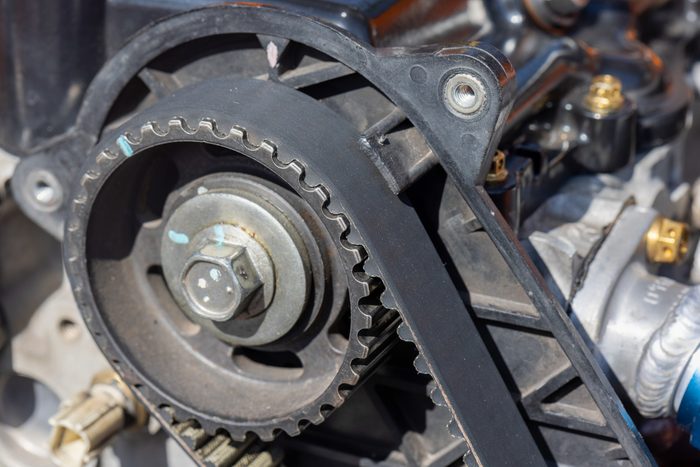
Why Is My Car Making a Whirring Noise When Driving?
A whirring noise frequently signals something spinning. See if the whirring changes with:
- Vehicle speed: If the pitch changes as you drive faster or slower, it implies tires or wheel/hub bearings are the cause. Check tires for abnormal wear, like cupping or feather edging.
- Engine speed: If it varies as engine rpm speeds up or slows down, it suggests problems with the drive belt system or drive accessories (power steering pump, water pump or alternator).
Try balancing and rotating tires, and have the suspension inspected for wear and proper alignment.
To exclude engine accessories, remove the drive belt, start the engine and listen for the noise. Don’t run the engine too long without the belt or it will overheat. If the noise goes away, check to be sure all accessory pulleys and drive belt idler wheels spin smoothly without wobbling or grinding. Also check for excess wear, burrs, rust or flat spots.
A dry or worn clutch bearing, worn wheel/hub bearing or differential ring and pinion gear can also make a similar “humming” or “droning” noise that will cause vibrations. Fix what you feel comfortable with and leave clutch and differential repairs to your mechanic.
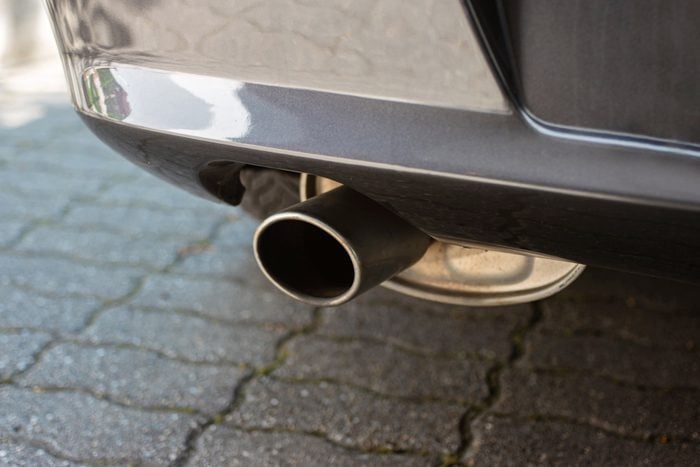
Why Does My Car Sound Like a Lawnmower?
A leaking or damaged exhaust system, blown intake manifold or head gasket head could cause this. Exhaust system, head and intake gasket repairs are best left to your mechanic.
Replacing the spark plugs, spark plug wires, engine oil, fuel filter, air filter and coolant, plus choosing the right additives to protect your engine and keep idling smoothly, are all basic DIY maintenance projects.




















